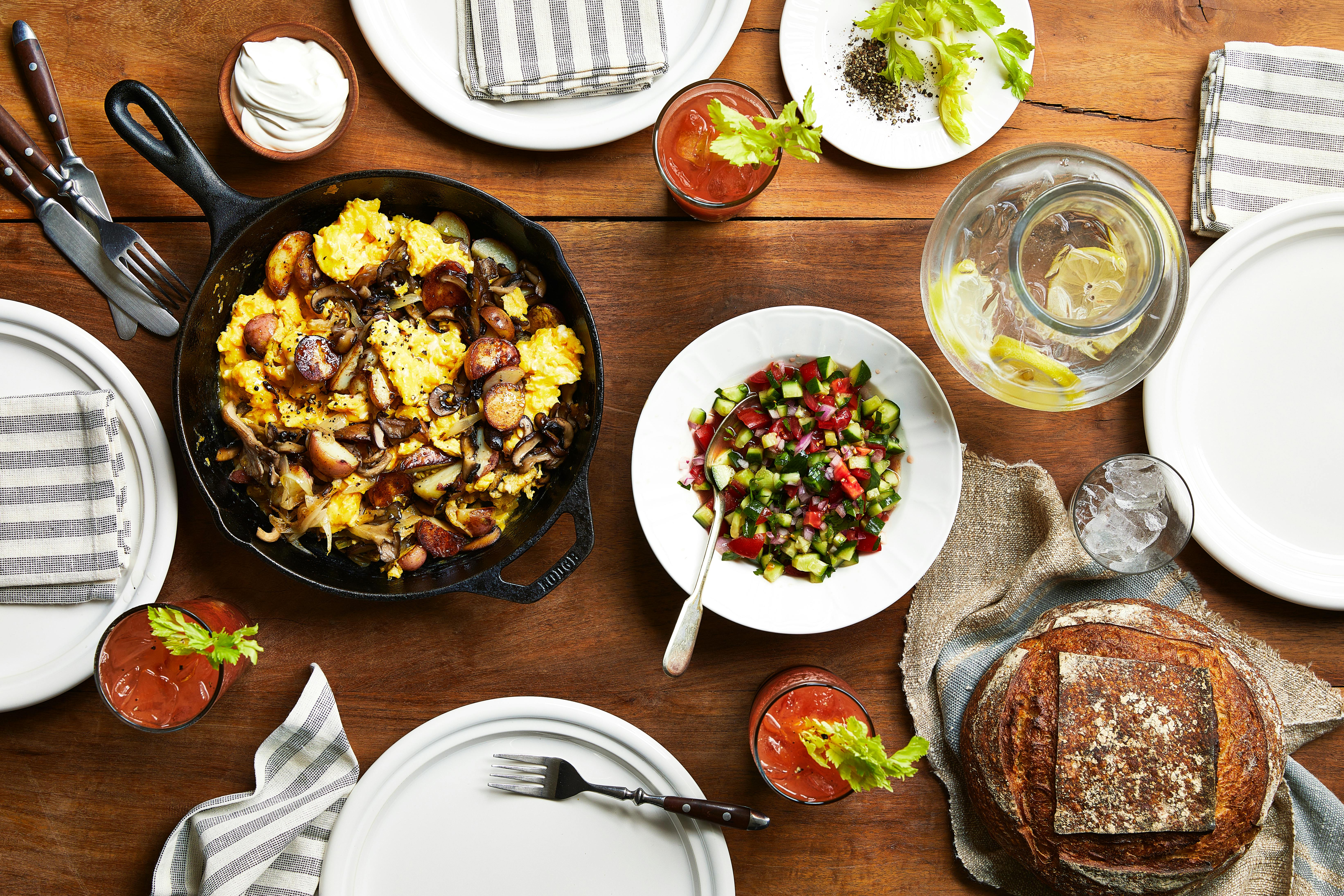Shared by Naama Tamir

There are always housemade pickles at Lighthouse BK, a welcoming seasonal restaurant in Brooklyn. Sometimes they show up in a salad with arugula and mushrooms — both roasted and pickled — other times, they are layered into sandwiches or their brine finds its way into a martini. And there’s “a fermented plate on the menu at all times,” explains Naama Tamir, who co-owns the restaurant with her brother Assaf Tamir.
A love of brine runs deep in their family. For their parents, it’s a flavor from home. On both sides, they are descendants of Holocaust survivors. Their father Ehud was born in a war camp in Germany and raised in Poland not knowing he was Jewish until he was 14. And their mother Maggie was born in Tajikistan where her parents fled the war from Poland. Both Ehud and Maggie immigrated to Israel where they met and raised their family in Rehovot, a small city in the center of the country.
“‘Til this day, if you open my parents’ fridge, the bottom shelf is just all housemade pickles — peppers, mushrooms, beets, different kinds of eggplant and cabbage, and cucumbers. They were always on the table with everything,” Naama says. Both of her parents led the pickling projects in their kitchen, with each taking charge of certain recipes — mushrooms were Ehud’s domain while eggplants were overseen by her mom Maggie. “We had a very intense pickling program,” she says laughing.
The mushrooms they pickled were foraged together as a family. “We had that whole Eastern European thing where we were foraging for mushrooms or asparagus. We spent a lot of weekends in the forest or on the beach, just living in nature,” Naama notes.
During the cooler months, her family would wake up early, strap on rain boots and head to the forest to search for wild mushrooms amongst the pine needles. They picked large meaty orniyot mushrooms and silky ones with a blue brown hue that remind her of enoki. Her dad Ehud taught Naama and her brothers to spot the fungus and cut their stems so they would be able to grow again; the siblings would compete for who could pick the most. Walking in the forest was meditative, Naama says. “The smell of the pine and the mushrooms was so fresh. I remember, even as a kid, having this quiet time with your thoughts, being in nature, and touching the soil.”
When they returned home, the family spread out their haul on a vinyl blanket to clean the mushrooms and identify them, with Ehud pulling out a handy book when he was stumped. For lunch, he would toss some of their findings into a hot skillet to make a scramble with potatoes. The remainder was pickled with mustard seeds, bayleaf, clove, allspice, vinegar, and carrots. When they were ready, “The mushrooms were sometimes given as gifts and accompanied every meal in a little bowl with a tiny fork,” Naama says.
As she thinks back to those days and her childhood, the theme of a loving, warm family surfaces again and again. From them, she learned a respect for nature and that “loving people is feeding people,” she says.
It’s how she and her brother approach their restaurant. “We don’t even want good service, we want warm service,” Naama explains. “New York City can feel very lonely, we want people to feel like they’re at home.” With a side of pickles, of course.
